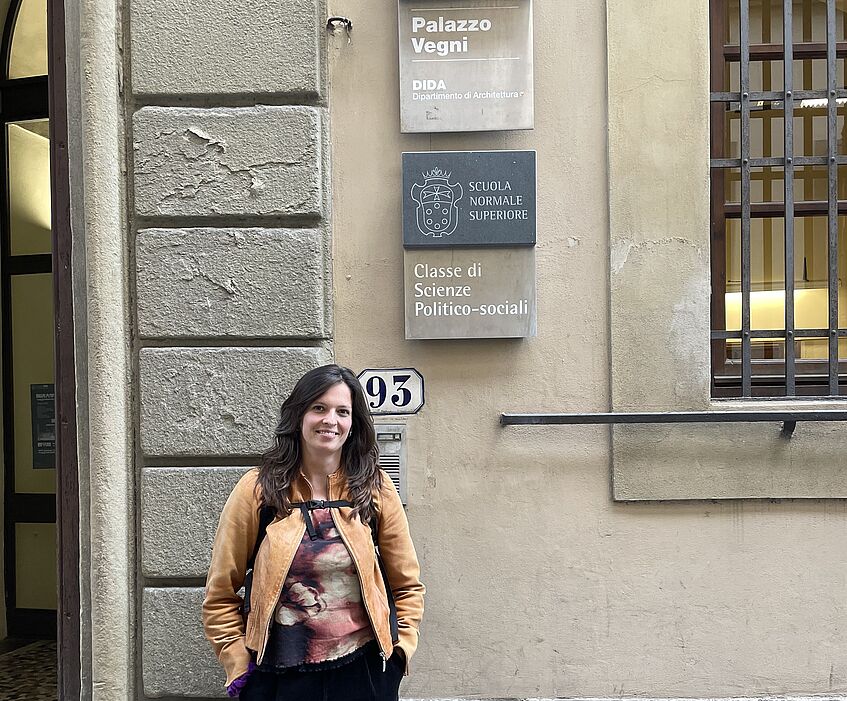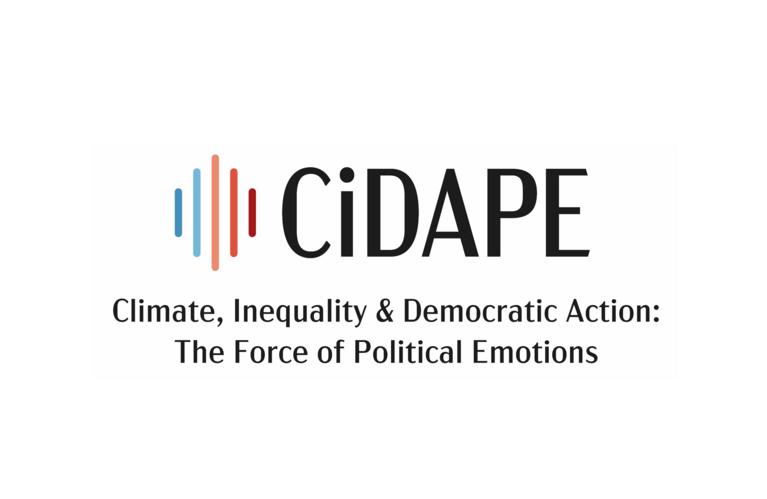How Emotions Shape Italy’s Energy and Climate Policies

© Nora Habelitz
How Emotions Shape Italy’s Energy and Climate Policies
In October and early November 2025, I had the pleasure of being hosted by the CIDAPE team at Scuola Normale Superiore in Florence, led by Prof. Manuela Caiani, for a research stay as a visiting PhD student. My doctoral research explores how emotions are used in policy communication around the sustainable energy transition, comparing Germany and Italy. My PhD project is embedded in CIDAPE's Work Package 2 (WP2), led by Prof. Sonja Blum at Bielefeld University. In WP2, we study how emotions shape policy narratives that surround specific energy and climate policies, so emotion-laden stories that policy actors tell to influence others, to attract attention, persuade or manipulate.
My stay in Florence was an opportunity to exchange ideas with the Italian CIDAPE researchers and deepen my understanding of climate emotions in Italy's energy policy discourse. During that time, I focused on a paper draft as part of my cumulative dissertation about the role of emotions in Italy's debate on energy poverty.
Energy poverty occurs when households must limit their energy use to the point that it harms their health and wellbeing. Rising levels of energy poverty in Europe show how energy transitions might increase inequalities. This can lead to strong emotional responses among affected groups, that are, however, mediated by policy communication. Italy is particularly exposed to high levels of energy poverty that mirror the country's spatial and social inequalities in the climate debate. Italy is also an important case to look at how policies are emotionally communicated, as political discourse tends to be very polarised between different social groups and political parties. To study how climate policies, such as energy poverty related policies, are communicated and how they employ emotions, appears to be an important path in understanding (potential) societal divisions.
One of the highlights of my stay was meeting researchers from the Osservatorio Italiano sulla Povertà Energetica (OIPE) (OIPE - Osservatorio Italiano sulla Povertà Energetica), the Italian National Observatory on Energy Poverty. Since its creation in 2019, OIPE develops indicators to measure energy poverty, assesses policy instruments, and publishes annual reports that have become key references in national debates. According to OIPE's 2023 report, 8.5% of Italians were energy poor in 2021, with an even larger group considered 'energy vulnerable.' These indicators have been incorporated into major national policy frameworks, including Italy's National Integrated Energy and Climate Plan (PNIEC). Yet, despite these initiatives, a coherent national strategy on energy poverty remains absent, making it a highly relevant field for studying emotional and political framing.
I also had enriching conversations with Italian researchers working on eco-social policies, including Benedetta Cotta from the University of Padova. We discussed about eco-social policies in Italy, which aim to integrate environmental and social objectives, and about the key actors involved in shaping them, from civil society organisations to private companies. Benedetta also shared insights from a comparative study on eco-social beliefs in Germany and Italy. A main result from the focus groups in both countries was that attitudes to 'green' policies seem to socially divide people. Although the study did not analyse emotions, some interesting observations were made regarding trust in policymakers and the government. While in Germany, those from a low socioeconomic background who supported the welfare state were extremely negative about climate policies, in Italy so-called environmental enthusiasts were sceptical about the state's capacity to implement climate mitigation policies (9 Public support for eco-social policies: insights from focus group studies in Germany and Italy).
During my stay, I also had the opportunity to attend conferences at Scuola Normale with leading international scholars. A particularly memorable event was a talk by Paul Lichterman from the University of California, who discussed the role of moralisation in activism. His reflections on how moral emotions are strategically employed to mobilise support resonated strongly with our research, as similar dynamics are evident in policy communication around energy and climate issues.

© Nora Habelitz
Last but not least, working with Prof. Manuela Caiani, Nikos Saridakis, and Ipek Demirsu at Scuola Normale was particularly inspiring. We discussed different approaches to coding and analysing emotions in climate policy discourse and shared insights from our respective case studies. I am very grateful to Prof. Manuela Caiani, Nikos Saridakis and Ipek Demirsu for this inspiring month at Scuola Normale.
The Florence CIDAPE team around Prof. Manuela Caiani is preparing to host a conference on "Emotions and Climate Politics" in March 2026, which will bring together scholars from across Europe. I am already looking forward to returning to Florence in March and to discuss my findings there!
Nora Habelitz is a Phd Researcher at Bielefeld University. As part of WP2 in CIDAPE she analyses the effect of political emotions in climate policy communication. Her Phd analyses how discrete emotions are used as part of policy narratives around the sustainable energy transition in Germany and Italy.
18.11.2025
